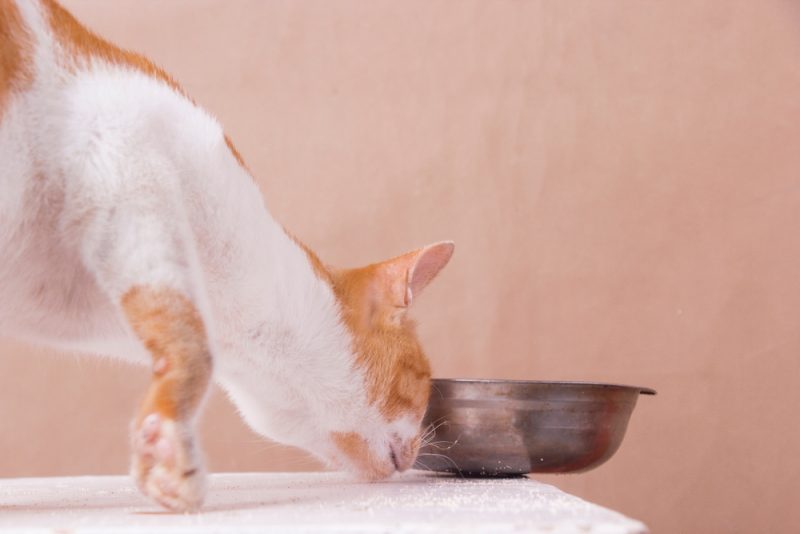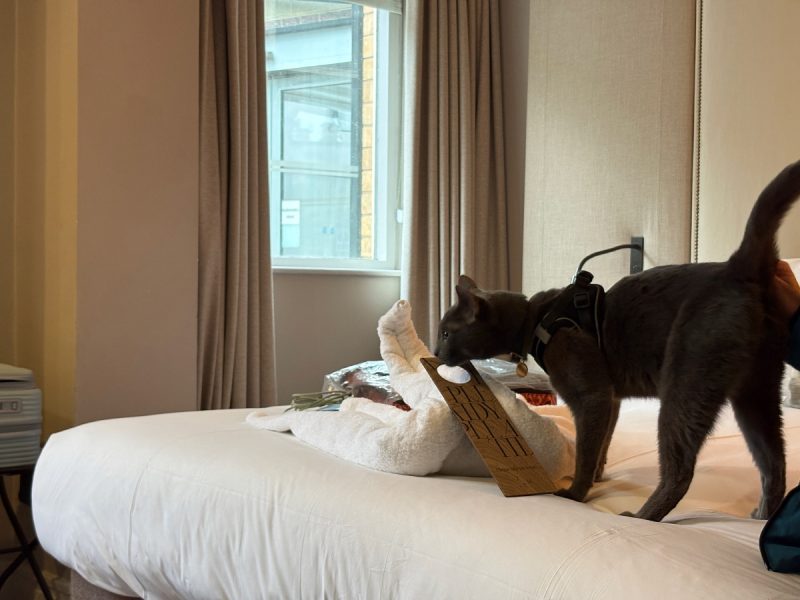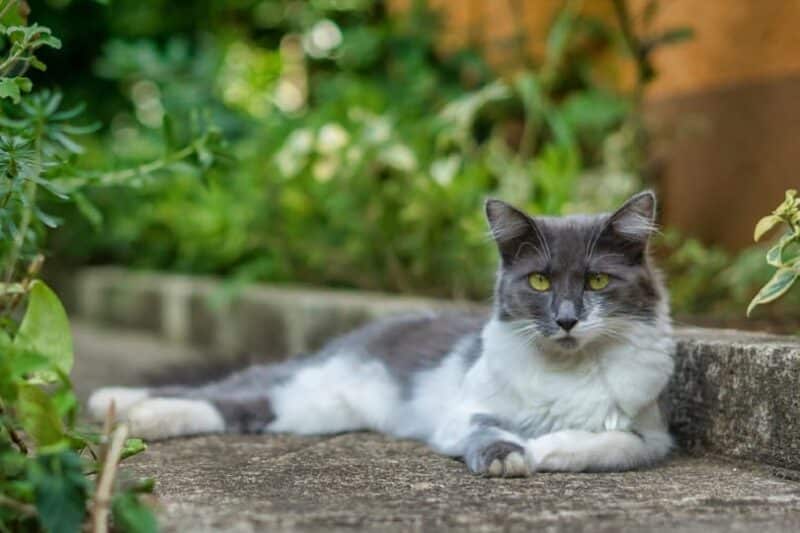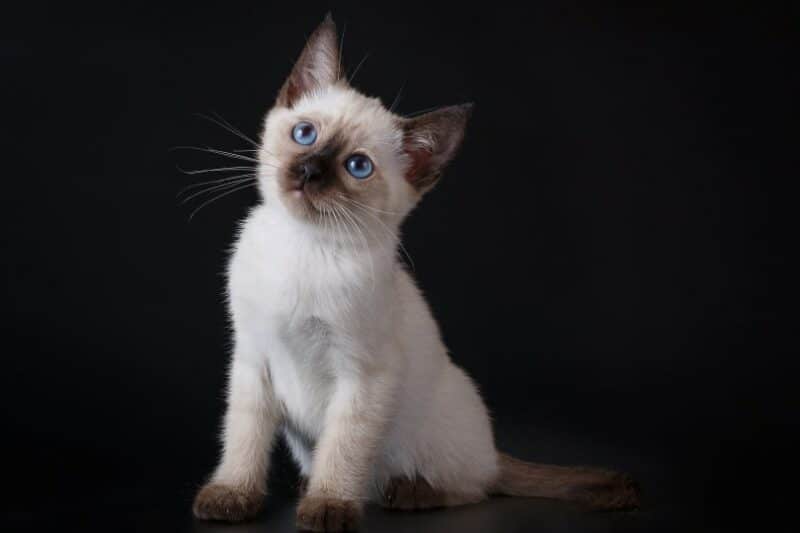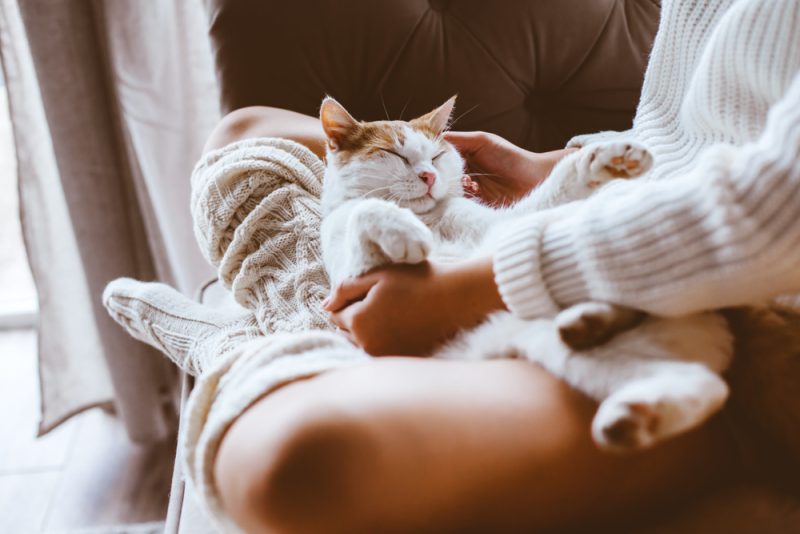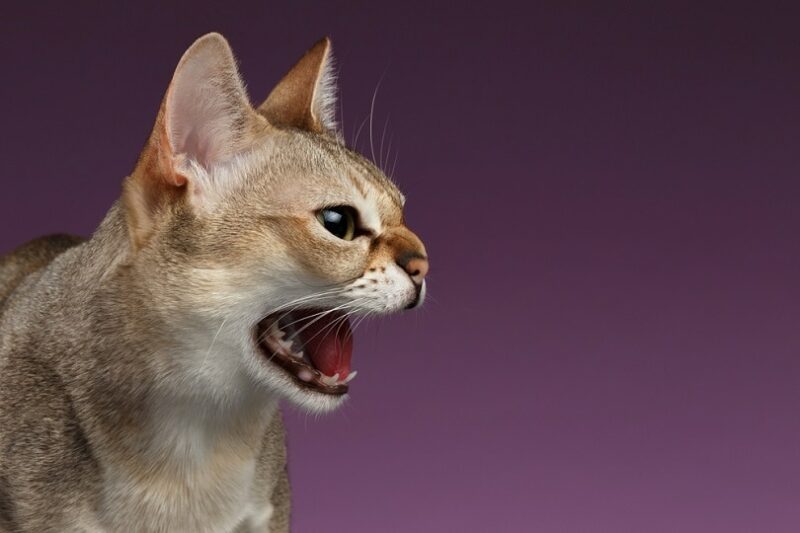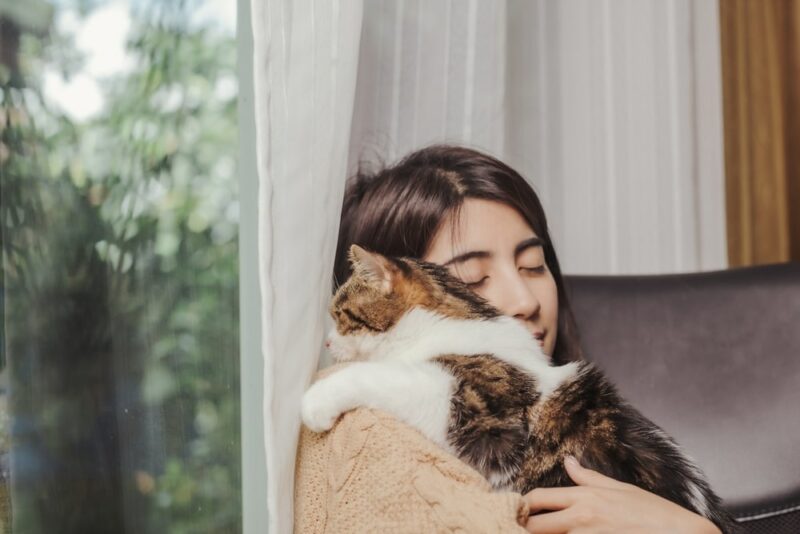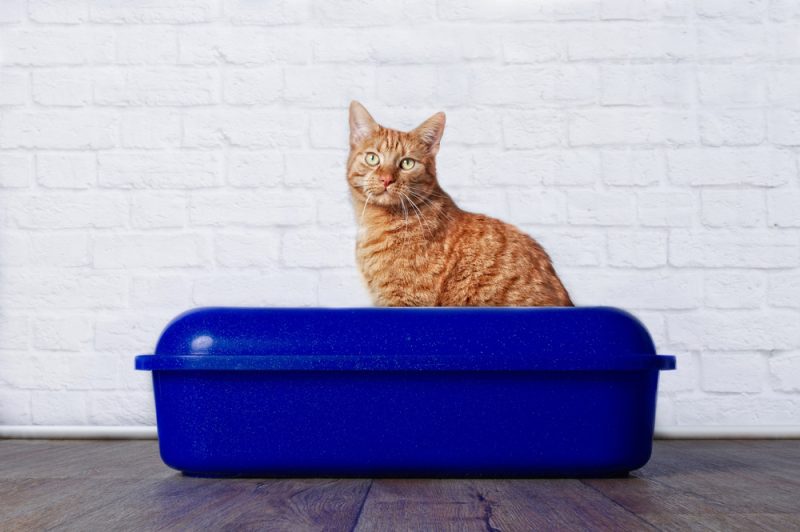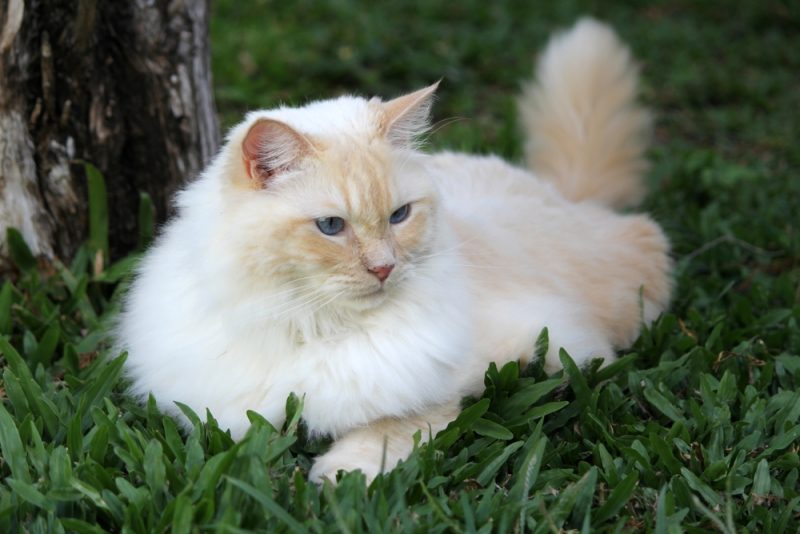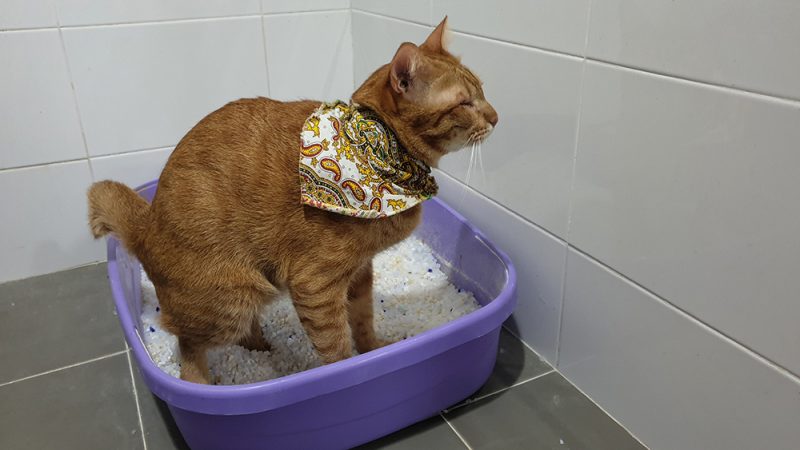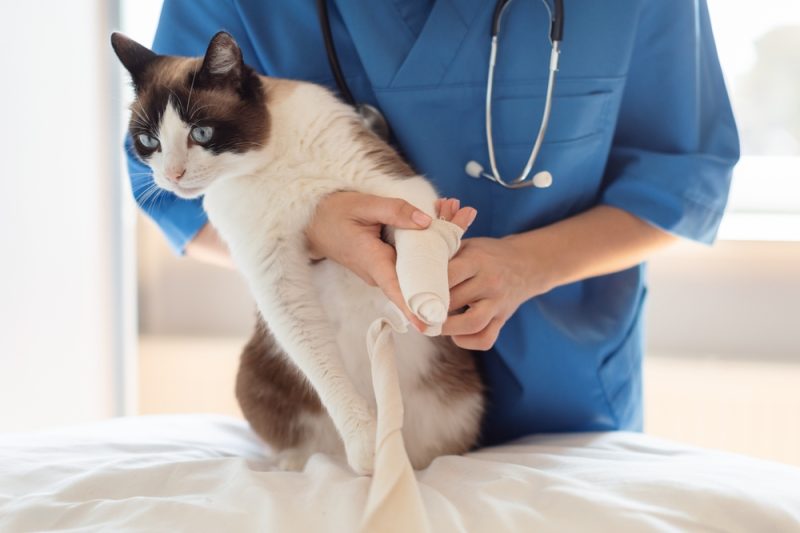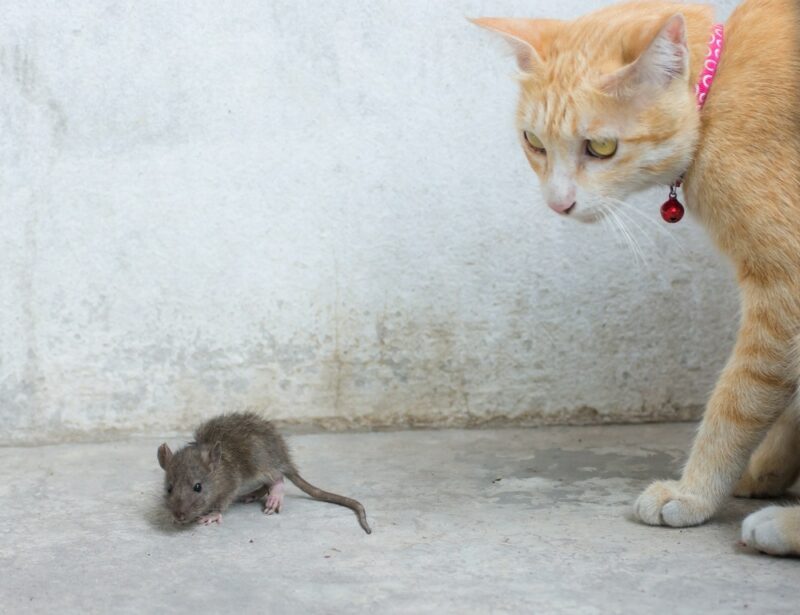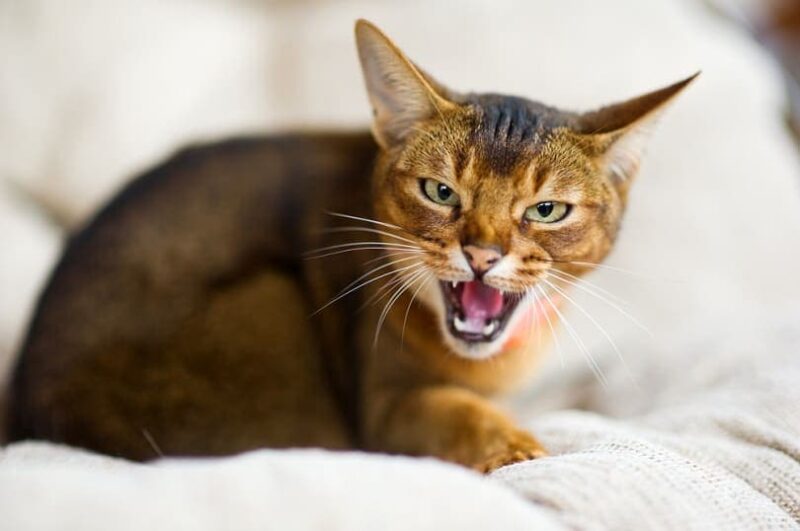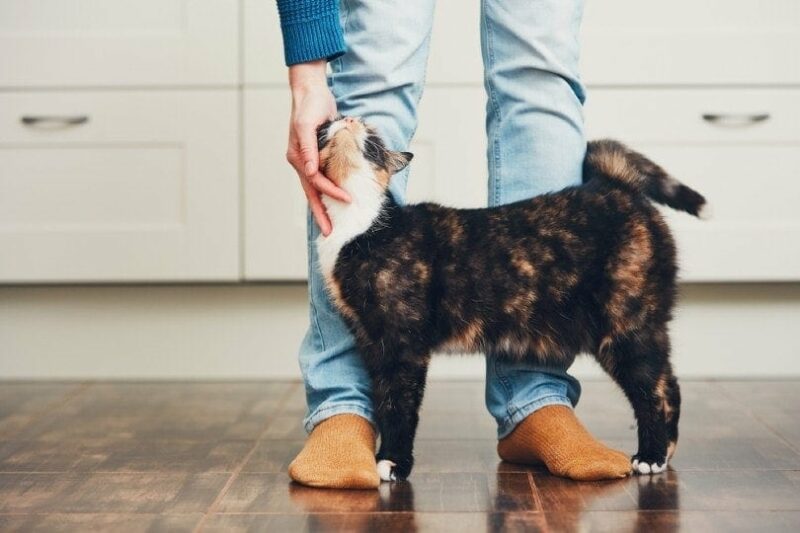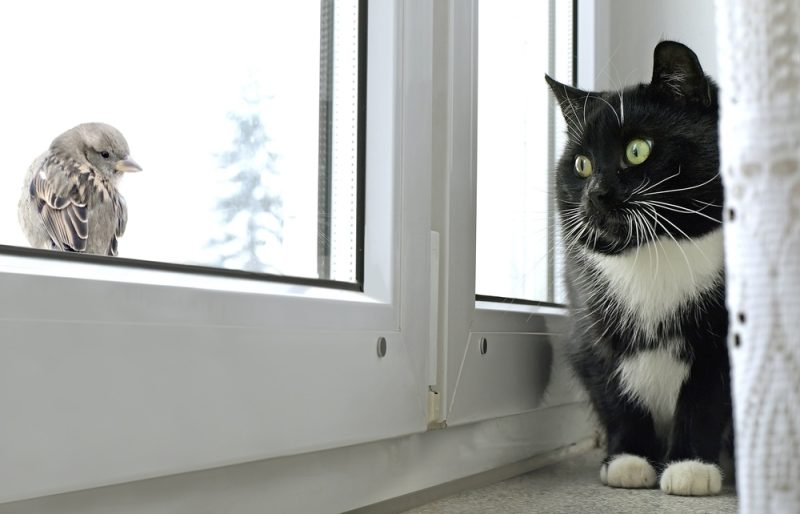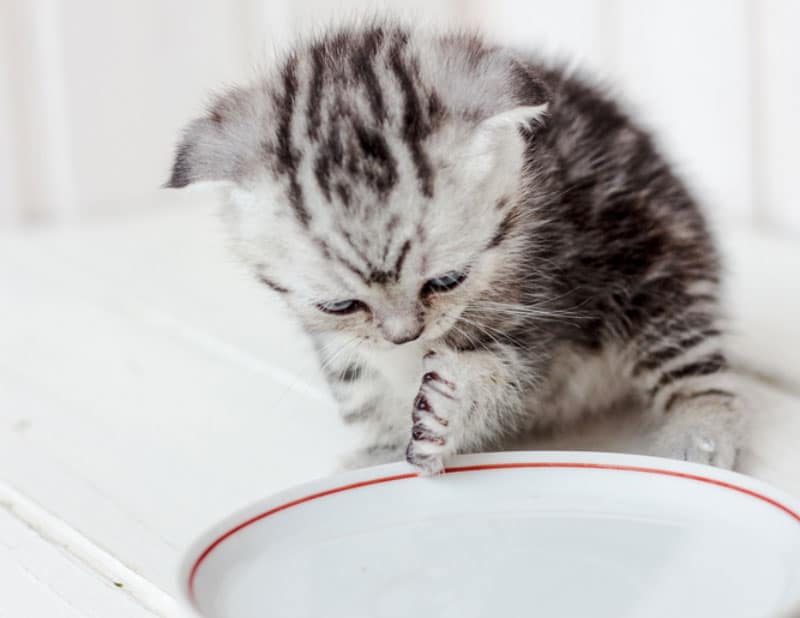We all like to think we’re experts when it comes to our own cats. We happily explain away their quirkiest behavior with a laugh or a ridiculous conceit and think we somehow understand their behavior in the process. But deep down we know that often the lovable scamps do things that make little rational sense on any level.
Enter John Bradshaw, a scholarly cat expert based in the United Kingdom who calls on the irrefutable truths of science to explain his salient feline theories. Handily, he’s put his vast cat knowledge to work and published a new book, Cat Sense, which aims to help pet owners become better companions to their cats.
Communicating via the transatlantic wonders of Skype, I spoke to John about some of the common myths pet owners believe will make a domestic cat happy, the dynamics of meowing as a form of cat-to-human communication, and the debate about multiple-cat households. Most crucially, I then pressed him on why my apparently smart cat, Mimosa, continually insists on getting herself stuck atop the fridge-freezer. Enlightenment ensued.

Catster: So what’s the biggest misconception cat owners have about how to make their cat happy?
John Bradshaw: Cat owners often think of their cats as being sociable animals, and if they spend a lot of time out of the house — which a lot of cat owners do — then they think that the cat will benefit from getting another cat for company. While it can be true, it’s something that needs to be planned and manned correctly. From my experience, getting a second cat is something that most people think they don’t need to do anything much about, other than just going to the shelter and getting another cat and putting the two cats together and letting them get along with it.
Cats are solitary animals at heart; they resent the presence of another cat. So a lot of times the cats will just carve up the house between them rather than actually getting along together. Of course, there are plenty of cats where two and three of them curl up together and they’re not just giving off the appearance of getting along, but there are enough exceptions to make it somewhat concerning. Whether it’s two cats inside the same house or two cats meeting in a neighbor’s yard, the stress that can result from the cats not getting along with each other can make them anxious and result in them getting sick. It can be a contributory factor to cystitis and various types of skin complaints. We’re not just talking about an anxious cat — they can get sick from the stress.
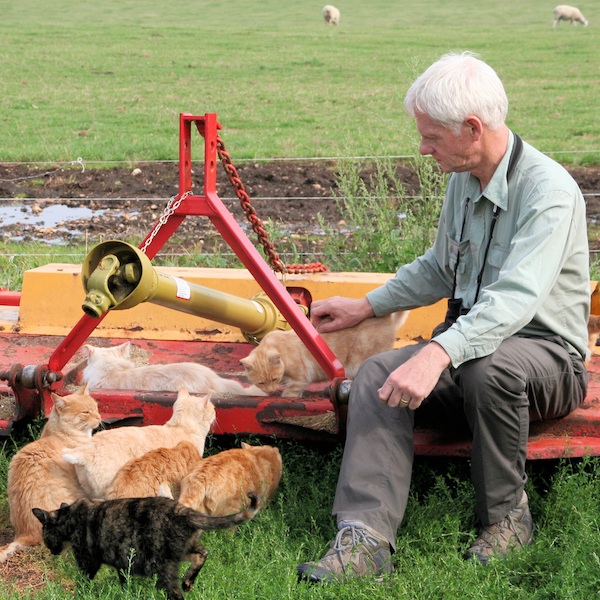
Catster: Are there any scientifically proven ways to check whether your cat will get along with a second cat before committing to adopting it?
John Bradshaw: I think in general you can, yes. The ideal if you’re homing two cats is to get two cats who’ve lived together all of their lives, as cats are basically family animals and they trust their own families. They don’t have family trees in the same sense that we do, but if two cats have grown up together you can usually assume that they will get along. It’s not inevitable, of course, but it’s more likely they will get along if they are family.
You can also adopt the approach where you introduce them gradually. So if you have one cat in your house and another you have your eye on adopting, you exchange cloths that you’ve rubbed on each cat so that they get used to the idea that there’s another cat around. You can sometimes judge from that whether the resident cat is going to accept the new cat. The presence of that smell reinforced and reintroduced a few times over a week will get the cat used to the idea that there is another cat around and also that there’s not too much to worry about.
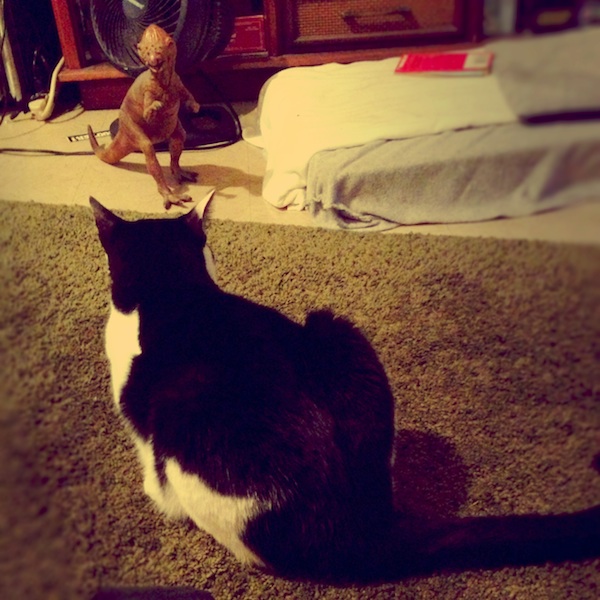
Catster: Could any of this be down to an ego thing with one of the cats?
John Bradshaw: I think ego comes with consciousness. I’m not one of those who believe that cats are actually conscious and self-aware, and I think most scientists would agree with that position. It’s really down to how they perceive the world and what their priorities are: There’s a cynical view that dogs have owners and cats have staff, but I think it makes a point that cats have different priorities.
Dogs are very attached to people; a dog may be territorial and bark at your gate but what they’re doing is protecting you rather than a physical piece of land. Cats are the opposite. They are animals that need a physical space of their own where they feel comfortable and don’t think they’re going to get attacked by another animal, and have a source of food which, of course, is the owner. Once they’ve got that they can start forming social allegiances. They really are affectionate towards their owners but it’s not their first priority — it’s physical space. It’s part of being a cat and it comes from their ancestors thousands of years ago.
Catster: So when people call their cats their children or fur-babies, is there any evidence that cats view them as parents?
John Bradshaw: There’s something of that in there, but it’s quite difficult to disentangle because much of what we see with cat-to-cat social behavior — which is the only analogy we have — is derived from kitten behavior. In the wild, cats don’t form colonies in the same way that domestic cats do, so they’ve taught themselves a way of coexisting with each other, and a lot of the behavior they use to do this is evolved from kitten behavior.
So if we take some examples of things cats do to owners to show that they are affectionate, one of the things they do is put their tails upright when they see you. Kittens do that towards their mothers, and adult cats do it to each other. So it’s a kitten behavior that’s turned into an adult cat behavior, which they now show towards us. But you can’t tell whether they’re regarding us as parents or just members of their own group.
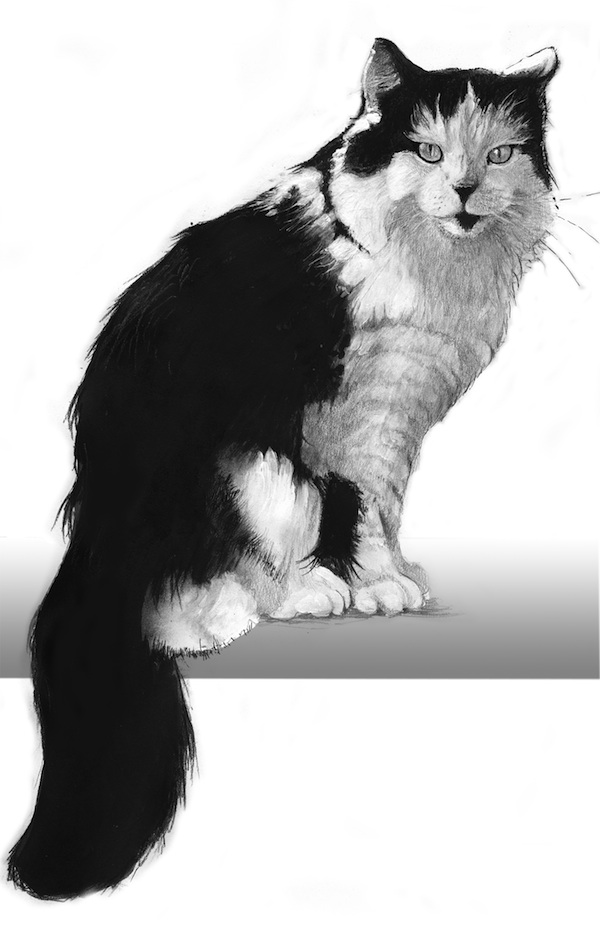
Catster: Are cats considered to be intelligent creatures?
John Bradshaw: Well, they’re not like dogs in the sense that you can train a seeing-eye dog. They wouldn’t be any good at that. But they do learn a lot about us and they do it in a subtly demonstrative way to show that they are adapting. They will adapt their personalities to suit the household they are in.
Take something like the meow, which is a noise which cats very rarely do to one another but is a common part of the way cats communicate with us. It’s because each cat learns in its own lifetime that meowing at us is a good way to get our attention. Unlike other cats, which are constantly monitoring one another, we don’t and we’ll watch TV or read a book, so they realize that meowing will get our attention. For the smarter cats, that will develop into a whole repertoire of different meows for different things.
Catster: So when my cat, Mimosa, meows at me and I make a meowing sound back, and then we meow back and forth, is it communication or play for her?
John Bradshaw: It’s a very simple form of communication for her. She’s getting your attention by meowing, and when you meow back she takes that as being a positive response. It’s attention. She’s then keeping it going, so, if you like, it’s a sociable game. It’s a bit like a conversation with a person in that you take turns to talk, and the amount of information might not always be much, but it keeps the conversation going, and that’s fun for the cat.
I used to talk to Splodge quite regularly, much the same way as you suggest, and we used to bounce cat noises back and forth, not really to say anything but just for the sake of talk.
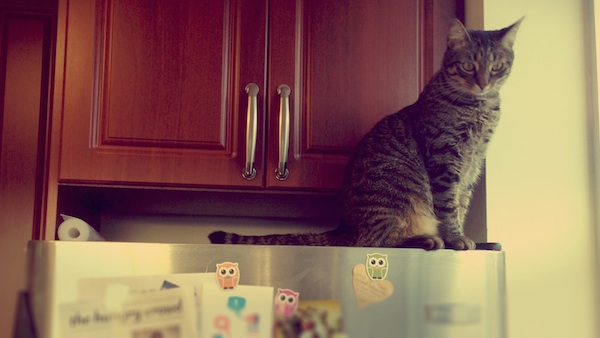
Catster: Why do cats often repeat behavior that can get them in worse off situations? Mimosa will often find a way on top of the fridge-freezer but then can’t get down on her own, so I have to pick her up and bring her down.
John Bradshaw: The clue may be in you picking her up and bringing her down, and that she quite likes being carried around by you. If she’s bored, that would be a good way of getting you to do it.
Just like any other animal or human, cats don’t always do things the most sensible way, but quite often their behavior can be about getting attention. So she’s thinking that she might like to be picked up and the best way is to wedge herself on top of the refrigerator; she’s not thinking that if he’s not here then I might be stuck for hours. Cats don’t really seem to plan far ahead!
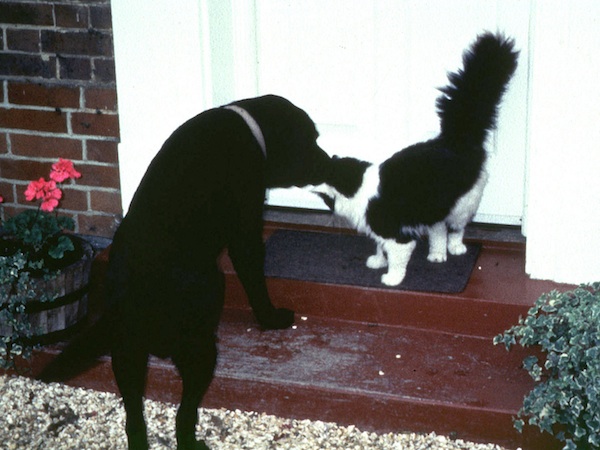
Catster: When you had Splodge, what was the strangest thing he did?
John Bradshaw: Splodge was a very unusual cat in that he wasn’t quite a one-man cat, but he liked me and one of my Ph.D. students, and that was it most days. He actually belonged to my daughter but never went into her room, which was disappointing to her, but he would seek me out and wait for me to come back from work by sitting in the driveway. When I’d pull up in the car he’d run up towards the car, rear up on his hind legs demanding to be let in, and then run around the car purring until he finally settled on my lap. It was the only time he ever liked to really sit on someone’s lap.
John Bradshaw’s book Cat Sense: How the New Feline Science Can Make You a Better Friend to Your Pet is available to buy here. You can read more of John’s work at Psychology Today.
About Phillip Mlynar: The self-appointed world’s foremost expert on rappers’ cats. When not penning posts on rap music, he can be found building DIY cat towers for his adopted domestic shorthair, Mimosa, and collecting Le Creuset cookware (in red). He has also invented cat sushi, but it’s not quite what you think it is.
Featured Image Credit By: sf_freelance, Shutterstock
